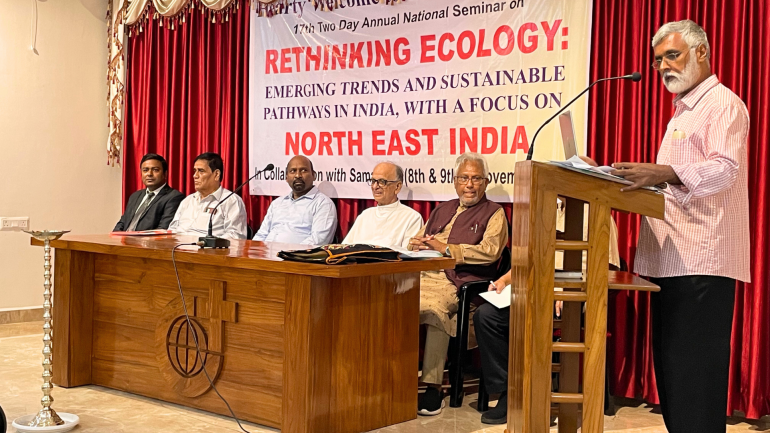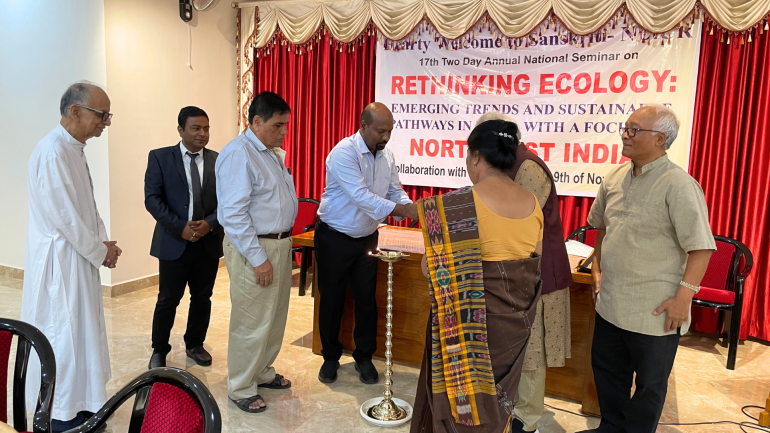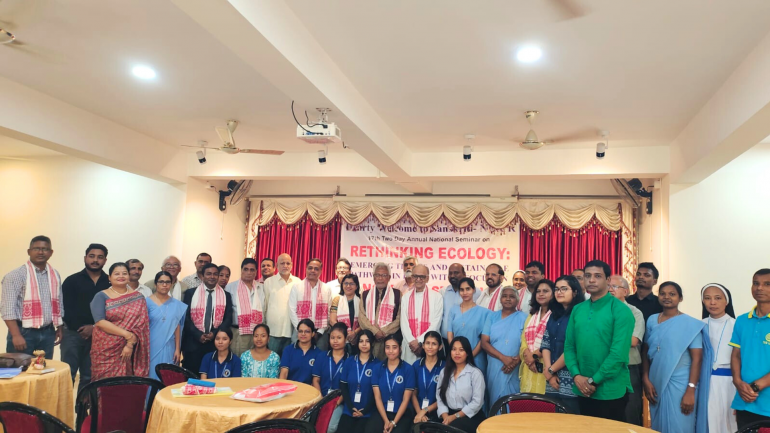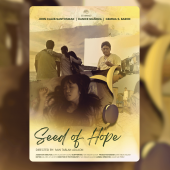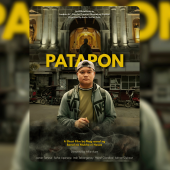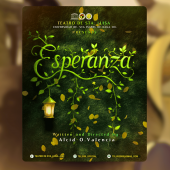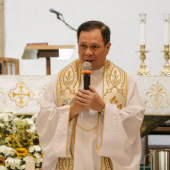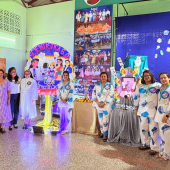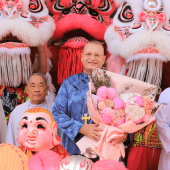India: National Seminar Explores Sustainable Ecology in the North East
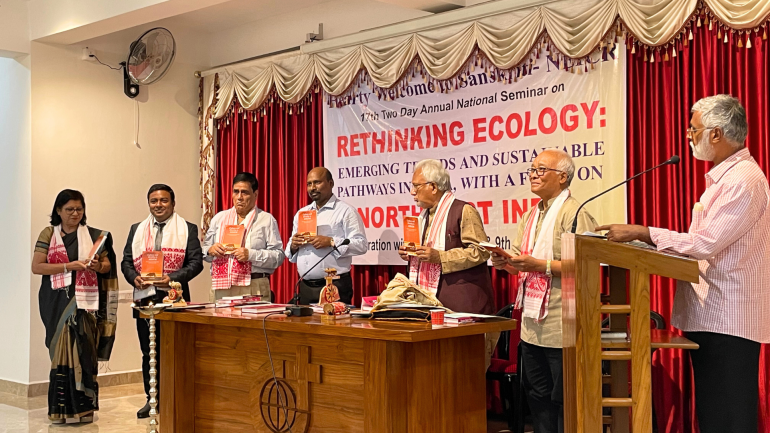
The Sanskriti–North Eastern Institute of Cultural Research (NEICR), Guwahati, north east India, hosted its 17th Annual National Seminar on November 8–9, 2025.
The two-day event focused on “Rethinking Ecology: Emerging Trends and Sustainable Pathways in India, with a Focus on North East India,” bringing together over 30 distinguished academicians, scholars, and researchers who presented 26 research papers across nine thematic sessions.
The seminar commenced with traditional ceremonies, including the Lighting of the Lamp. Dr. K. Jose SVD, Director of Sanskriti–NEICR, welcomed participants, followed by messages from Rev. Fr. Jeevan Kennady SVD, Archbishop Emeritus Thomas Menamparampil, SDB of Guwahati, and Dr. R. P. Athparia, Foundation Fellow and NEICR Lifetime Achievement Award recipient (2024). Prof. Kandarpa Das, Vice Chancellor of Girijananda Choudhury University, served as Chief Guest and emphasized the urgent need for policy interventions and public engagement to harmonize development with ecological preservation in the sensitive Northeastern region.
A significant highlight was the conferral of the NEICR Lifetime Achievement Award 2025 upon Prof. S. Rahim Mondal, former Professor of Anthropology at North Bengal University, recognizing his seminal contributions to ecological and cultural anthropology. The newly instituted Prof. Birinchi Kumar Medhi Memorial Award 2025 was presented to Dr. Shyam Choudhury of Assam down town University (AdtU) for outstanding academic achievement. Two important publications, “Shaping India” and “Indian Story: Culture and Identity in Assam,” were also released during the inaugural session.
Prof. Vincent Darlong, former Vice Chancellor of Martin Luther Christian University, Shillong, delivered the keynote address on “Rethinking Ecology: Balancing Biodiversity, Landscapes, and Livelihoods.” He emphasized integrating indigenous wisdom and local community practices with modern conservation strategies for sustainable development. The keynote set the intellectual framework for subsequent discussions throughout the seminar.
The 26 research presentations explored diverse themes including traditional ecological knowledge, climate change impacts, forest and soil degradation, and nature-based solutions. Notable presentations included Dr. Sanjib K. Borkakoti’s analysis of ecological insights from Srimanta Sankaradeva’s teachings, Dr. Prateeti Barman’s groundbreaking research on global warming’s mental health impacts, and Dr. Ranga Ranjan Das’s examination of developmental consequences. Dr. John Singarayar SVD provided unique perspectives on the Katkari Tribe’s ecological wisdom through the lens of the Papal encyclical Laudato Si’, highlighting spiritual dimensions of environmental stewardship.
Case studies presented included bamboo housing as a climate solution in Meghalaya, sacred groves of Mawphlang demonstrating traditional conservation practices, climate change effects on cereal crop production, and indigenous water conservation strategies. These presentations demonstrated the rich diversity of ecological research being conducted in the region and the importance of integrating traditional knowledge with contemporary science.
The Valedictory Session, chaired by Dr. R. P. Athparia, featured remarks from Dr. Sanjib K. Borkakoti and a comprehensive address by Prof. Abani K. Bhagabati of Gauhati University. Prof. Bhagabati reinforced the necessity for fostering ecological consciousness rooted in ethics, tradition, and community participation. The seminar concluded with the distribution of awards and certificates, the singing of the National Anthem, and a commemorative group photograph, leaving participants inspired to continue meaningful work at the intersection of ecology, culture, and sustainable development.
Radio Veritas Asia (RVA), a media platform of the Catholic Church, aims to share Christ. RVA started in 1969 as a continental Catholic radio station to serve Asian countries in their respective local language, thus earning the tag “the Voice of Asian Christianity.” Responding to the emerging context, RVA embraced media platforms to connect with the global Asian audience via its 21 language websites and various social media platforms.





